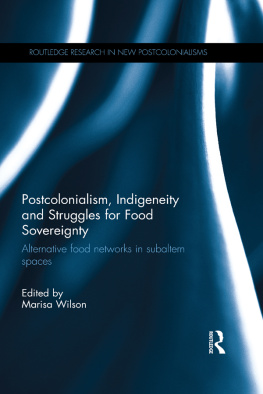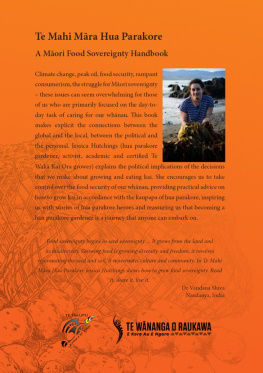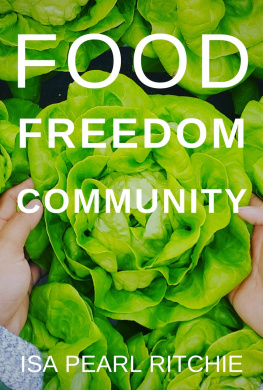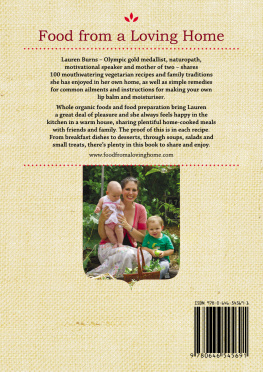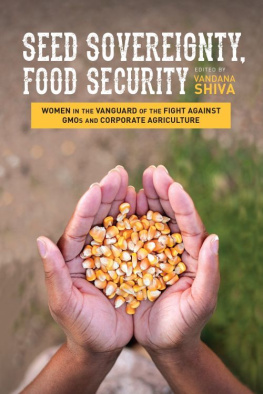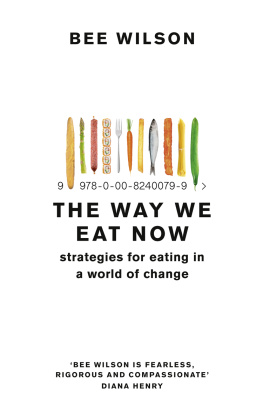
Postcolonialism, Indigeneity and Struggles for Food Sovereignty
This book explores connections between activist debates about food sovereignty and academic debates about alternative food networks. The ethnographic case studies demonstrate how divergent histories and geographies of people-in-place open up or close off possibilities for alternative/sovereign food spaces, illustrating the globally uneven and varied development of industrial capitalist food networks and of everyday forms of subversion and accommodation. How, for example, do relations between alternative food networks and mainstream industrial capitalist food networks differ in places with contrasting histories of land appropriation, trade, governance and consumer identities to those in Europe and non-indigenous spaces of New Zealand or the United States? How do indigenous populations negotiate between maintaining a sense of moral connectedness to their agri- and acqua-cultural landscapes and subverting, or indeed appropriating, industrial capitalist approaches to food? By delving into the histories, geographies and everyday worlds of (post)colonial peoples, the book shows how colonial power relations of the past and present create more opportunities for some alternative producerconsumer and statemarketcivil society relations than others.
Marisa Wilson is Chancellors Fellow in the Institute of Geography, School of GeoSciences at the University of Edinburgh, UK.
Routledge Research in New Postcolonialisms
Edited by Mark Jackson
Senior Lecturer in Postcolonial Geographies at the University of Bristol, UK
This series provides a forum for innovative, critical research into the changing contexts, emerging potentials, and contemporary challenges ongoing within postcolonial studies. Postcolonial studies across the social sciences and humanities are in a period of transition and innovation. From environmental and ecological politics, to the development of new theoretical and methodological frameworks in posthumanisms, ontology, and relational ethics, to decolonizing efforts against expanding imperialisms, enclosures, and global violences against people and place, postcolonial studies are never more relevant and, at the same time, challenged. This series draws into focus emerging transdisciplinary conversations that engage key debates about how new postcolonial landscapes and new empirical and conceptual terrains are changing the legacies, scope, and responsibilities of decolonizing critique.
Postcolonialism, Indigeneity and Struggles for Food Sovereignty
Alternative food networks in subaltern spaces
Edited by Marisa Wilson
Postcolonialism, Indigeneity and Struggles for Food Sovereignty
Alternative food networks in subaltern spaces
Edited by Marisa Wilson

First published 2017
by Routledge
2 Park Square, Milton Park, Abingdon, Oxon OX14 4RN
and by Routledge
by 711 Third Avenue, New York, NY 10017
Routledge is an imprint of the Taylor & Francis Group, an informa business
2017 selection and editorial matter, Marisa Wilson; individual chapters, the contributors
The right of Marisa Wilson to be identified as the author of the editorial material, and of the authors for their individual chapters, has been asserted in accordance with sections 77 and 78 of the Copyright, Designs and Patents Act 1988.
All rights reserved. No part of this book may be reprinted or reproduced or utilized in any form or by any electronic, mechanical, or other means, now known or hereafter invented, including photocopying and recording, or in any information storage or retrieval system, without permission in writing from the publishers.
Trademark notice: Product or corporate names may be trademarks or registered trademarks, and are used only for identification and explanation without intent to infringe.
British Library Cataloguing in Publication Data
A catalogue record for this book is available from the British Library
Library of Congress Cataloging in Publication Data
Names: Wilson, Marisa L. (Marisa Lauren), 1979 editor.
Title: Postcolonialism, indigeneity and struggles for food sovereignty:
alternative food networks in the subaltern world / edited by Marisa Wilson.
Description: Milton Park, Abingdon, Oxon; New York, NY: Routledge, 2017. |
Series: Routledge research in new postcolonialisms | Includes bibliographicalreferences and index.
Identifiers: LCCN 2016020595| ISBN 9781138920873 (hardback) |
ISBN 9781315686769 (e-book)
Subjects: LCSH: Food sovereigntyCross-cultural studies. | Food supply
Social aspectsCross-cultural studies. | Indigenous peoplesFood
Cross-cultural studies. | PostcolonialismCross-cultural studies.
Classification: LCC HD9000.5 .P64 2017 | DDC 338.1/9dc23
LC record available at https://lccn.loc.gov/2016020595
978-1-138-92087-3 (hbk)
978-1-315-68676-9 (ebk)
Typeset in Times New Roman
by Keystroke, Neville Lodge, Tettenhall, Wolverhampton
Contents
MARISA WILSON
CAROLYN MORRIS AND STEPHEN FITZHERBERT
H M ASHRAF ALI AND HELEN VALLIANATOS
SOPHIA WOODMAN AND CHARLES R. MENZIES
NAOMI MILLNER
NICOLETTE LARDER
AMY K. MCLENNAN
MARISA WILSON
PETER JACKSON
Figures
Tables
H M Ashraf Ali is Assistant Professor in the Department of Anthropology at the University of Chittagong, Bangladesh.
Melissa L. Caldwell is Professor of Anthropology at the University of California, Santa Cruz.
Stephen FitzHerbert is Senior Tutor in the Geography Programme at Massey University, Palmerston North, New Zealand.
Peter Jackson is Professor of Human Geography at the University of Sheffield.
Nicolette Larder is a Lecturer in the Division of Geography and Planning at the University of New England.
Amy K. McLennan is a Research Associate in the School of Anthropology and Museum Ethnography at the University of Oxford.
Charles R. Menzies is a Professor in the Department of Anthropology at the University of British Columbia.
Naomi Millner is a Lecturer in Human Geography in the School of Geographical Sciences at the University of Bristol.
Carolyn Morris is a Senior Lecturer in the Social Anthropology Programme at Massey University, Palmerston North, New Zealand.
Helen Vallianatos is Associate Professor in the Department of Anthropology at the University of Alberta, Canada.
Marisa Wilson is Chancellors Fellow in the Institute of Geography, School of GeoSciences at the University of Edinburgh.
Sophia Woodman is Chancellors Fellow in Sociology in the School of Social and Political Science at the University of Edinburgh.
Melissa L. Caldwell
In the coastal Northern California community where I teach and live, food sovereignty and alternative food systems are part and parcel of daily life. People from many different walks of life students, farmers, activists, policy makers, scientists and ordinary consumers alike come together in just as many diverse spaces classrooms, municipal offices, supermarkets, community gardens, small family farms, large industrial vineyards and parking lots turned into farmers markets to debate and communicate their ideas about such pressing local and global issues as food access, fair labour practices, immigration, environmental sustainability and health, among many others. Food is more than simply a nutrient to be ingested, but is the vehicle through which community values and political and economic action become realized.
Next page
